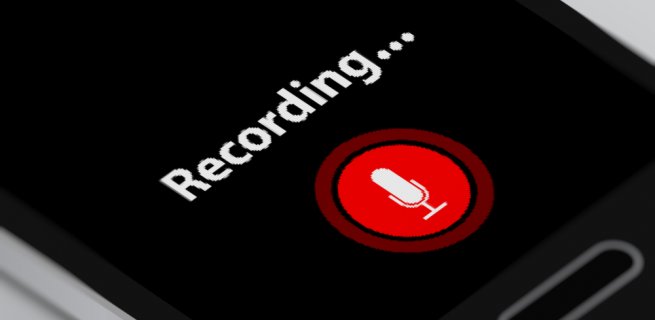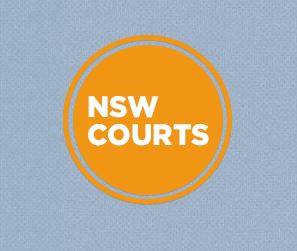By Paul Gregoire and Ugur Nedim
On 25 January 2017, an argument broke out between three siblings, who were attending the nursing home where their mother lived. The dispute involved Yvette Court claiming her brother Robert Rathswohl and sister Lisa Davies had left all the care of their elderly parents up to her.
Rathswohl and Davies subsequently drove their father home, at which point they discovered a will couldn’t be located that had been drafted in 2007 and split the father’s estate equally between the three children. So, the two kids present arranged for a new will to be written up within days.
However, on 15 March, another will appeared on the scene which left the family home entirely to Court, whilst the father’s money was to be divvied up between the other two siblings. And it was around this time that Court had supposedly moved into her father’s house to care for him.
Davies went on to record a chat between herself, her husband and her father, which took place on 29 April. Her father was unaware the recording was taking place. And the conversation involved Davies asking him questions regarding the details of how Court was actually looking after him.
Rathswohl recently took the matter to the NSW Supreme Court seeking more adequate provision be made for him in the distribution of his father’s estate. And in presiding over the October hearings, Justice Kelly Rees deliberated upon whether the recording could be tendered as evidence.
Recording conversations in NSW
Subsection 7(1)(b) of the Surveillance Devices Act 2007 (NSW) (the SDA) makes it an offence to use a listening device to record a private conversation of which they’re a part of.
This crime carries a maximum penalty of 5 years imprisonment and/or a fine of $11,000.
However, there are exceptions to the rule. Subsection 7(3)(b)(i) of the SDA stipulates that no such offence occurs if one of the participants in the private conversation consents to the recording as it is “reasonably necessary” for the protection of their “lawful interests”.
This law was first enacted under the now-repealed Listening Devices Act 1984 (NSW) to “establish safeguards against the unjustified invasion of privacy that can be occasioned by the use of electronic surveillance”.
And as the case was proceeding, objection was taken over Rathswohl tendering the recording of Davies’ chat with her father, as section 138 of the Evidence Act 1995 (NSW) provides that illegally obtained evidence shouldn’t be permitted in court, unless it’s more desirable that it is admitted.
Considering the authorities
As part of her deliberations on whether to permit the Davies recording, Justice Rees considered the criminal, family and civil authorities on tendering conversations recorded without consent as evidence in court.
In the 2014 NSW Court of Criminal Appeal case DW verses R, it was found that while a person with a criminal complaint can seek a warrant to record someone legally, a 14-year-old girl’s secret recording of her abusive father was permissible as she was hardly aware of the legal avenues.
The 2016 Federal Circuit Court case Gawley and Bass saw Judge Barbara Baker rule that a recording covertly made by a father to establish his ex-partner was violent toward their child was evidence because it was found appropriate to make the recording as he was protecting his lawful interest.
The South Australian Supreme Court 2010 case Thomas versus Nash is an example of how the premise of secretly recording a conversation “just in case” something is divulged doesn’t hold up in court. It was found Nash’s recordings of his mother were an invasion of her privacy.
And heard in the ACT Supreme Court, 2018’s Dong versus Song saw Justice Verity McWilliam rule that a recording of Song who was failing to provide written confirmation of a sale with Dong was tenderable, as there were no circumstances there would permit the plaintiff to obtain a warrant.
Further considerations
Justice Rees then summarised aspects of a case that need to be considered when determining whether a recording of a conservation without consent should be admitted as evidence because it’s “reasonably necessary for the protection of the lawful interests” of the person making the recording.
These include whether the recording was legitimately made to obtain submissions, if it was necessary to protect oneself from fabrication, whether other lawful avenues were overlooked, or if the reasoning behind the recording was serious enough to warrant it.
Her Honour then set out that Ms Davies did have a “lawful interest” in the conversation with her father as she was concerned as to whether her sister was providing the care she was claiming to be administering.
In whether Davies should have told her father she was recording the conversation, the justice found that if he had been notified, it may have stifled his willingness to provide honest answers regarding questions on sensitive family matters.
Evidence admitted
“The evidence here supports the existence of a serious dispute between the children as to their father’s will and care at the time the recording was made,” Justice Rees said on 23 October 2020.
“Ms Court was thought to be responsible for the disappearance of the father’s will which left his estate to the children equally.”
Her Honour set out that there was no legal avenue to seek a warrant from police in order to lawfully record the father, so therefore, she was “satisfied that it was reasonably necessary for the protection of the lawful interests of Mrs Davies to make the recording”.
Justice Rees added that a further reason to allow the recording to be tendered as evidence was that in listening to the conversation between the father and daughter it was clear their relationship was one of “mutual care and affection”.
In concluding, Justice Rees raised a 2017 video of Court speaking to her father as a “more striking example” of evidence that may be considered suspect.
The footage shows the father declaring his reasons for leaving the house in its entirety to Court only, however his body language “disavows his words”.
“Although I have yet to absorb all of the evidence in this case, my initial impression on viewing the video was that it records an act of appeasement more than an announcement,” her Honour finished.












I personally had a police recorded phone tap to my sexual assaulters played in court via the perpetrator in defence of an AVO.
The problem being he and his lawyer had removed his wrongdoings and altered the original recording which was for the rape trial. The court played it out anyway.
There are also instances where people tamper with recorded voices, footage and photos.
On a more positive note it would depend on each individual situation an d circumstance. Which as highlighted above works in some instances but not others.
Note: When police have been recording surveillance and witness a different crime such as child sexual abuse would they be accountable for not saving the victim?